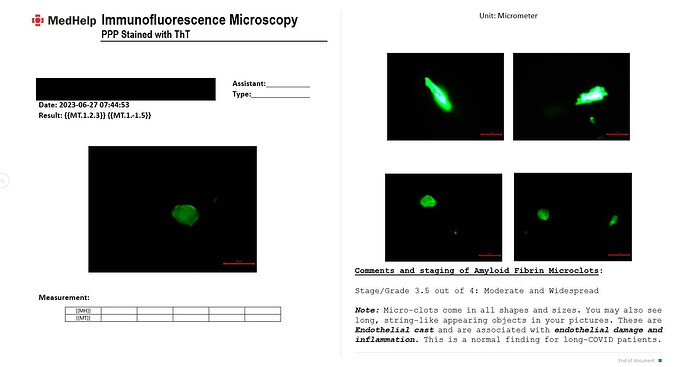To add on… here is an example of microclot test result from MedHelp. You can get it through Jordan Vaughn’s practice (MedHelp) or through RTHM.
https://www.reddit.com/r/covidlonghaulers/comments/14kmqzv/anyone_done_a_microclot_test_here_are_my_results/
You can compare the grading system in the image above (“Stage/Grade 3.5 out of 4: Moderate and Widespread”) with the grading systems previously described by Pretorius, Kell et al.
glenn_chan:
Microclot grading system
Pretorius, Kell, and others in their group have published numerous papers on microclots. The T2DM paper published Nov 2020 posted results from an objective system that measured amyloid area to determine the extent of microclotting.
Micrograph analysis was done using ImageJ (version 2.0.0-rc-34/1.5a). The % area of amyloid were calculated using the thresholding method. This method allows a measurement of area of amyloid signal.
Some subsequent papers used a grading system with both objective and subjective components. For example, version 1 of a pre-print described the grading system in Table 3 (Tables 2-4).
Some clinicians have switched to a grading system that is completely subjective. A potential issue with such a grading system is that there is a conflict of interest that would bia$ the results towards the patient needing treatment.
